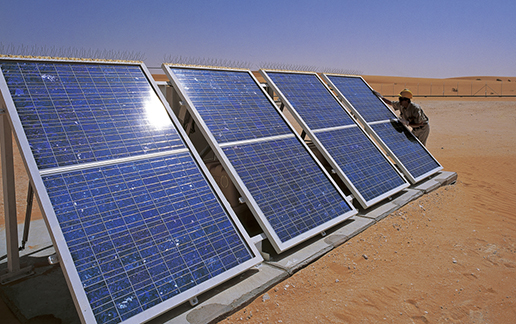The University of Ghana and the European University Institute (EUI) have united their expertise to address Africa’s urgent need for a sustainable energy transition.
The joint initiative, “Climate Finance for Sustainability Energy Transition in Africa,” aims to explore funding options for implementing renewable energy solutions in developing countries, with a particular focus on sub-Saharan Africa.
Speaking exclusively to Univers Business, Director of the Institute of Statistical, Social Economic Research (ISSER) at the University of Ghana, Prof. Peter Quartey stressed on the significance of Ghana’s transition from conventional energy sources to harnessing the abundant solar power available in the region.
He called for increased funding and investments to facilitate the shift towards environmentally-friendly energy solutions.
“We have a lot of solar power, but we are not trapping and taking advantage of this,” Professor Quartey emphasized.
“This is a wake-up call to all of us. We need to commit resources over time and transition to more modern forms of energy that are environmentally friendly.”
According to Professor Quartey, the transition to sustainable energy sources requires proactive governmental measures.
He further underscored the importance of robust regulations and policies that encourage local content and increased government investment in the energy sector. Through this, Ghana can unlock the full potential of its resources and minimize reliance on foreign investors, which will in turn ensure greater returns for the nation.
Professor Kenneth Amaeshi, an expert in Transnational Governance at the European University Institute (EUI), revealed the purpose of the collaborative program.
He explained that the initiative’s aim to gain insights into sub-Saharan Africa’s perspectives on the global energy transition, with a specific focus on funding options for implementing sustainable energy solutions in developing countries.
“Africa must take ownership of its energy transition to address pressing challenges like poverty, health disparities, and gender inequalities. The awareness is growing, at least, we know that we need to transition, and that’s a good starting point. But we need to find a balanced approach to tackle all the pressing problems in Africa in relation to the required energy transition.”
–
Story by | Elizabeth Kabukie Ocansey| univers.ug.edu.gh





